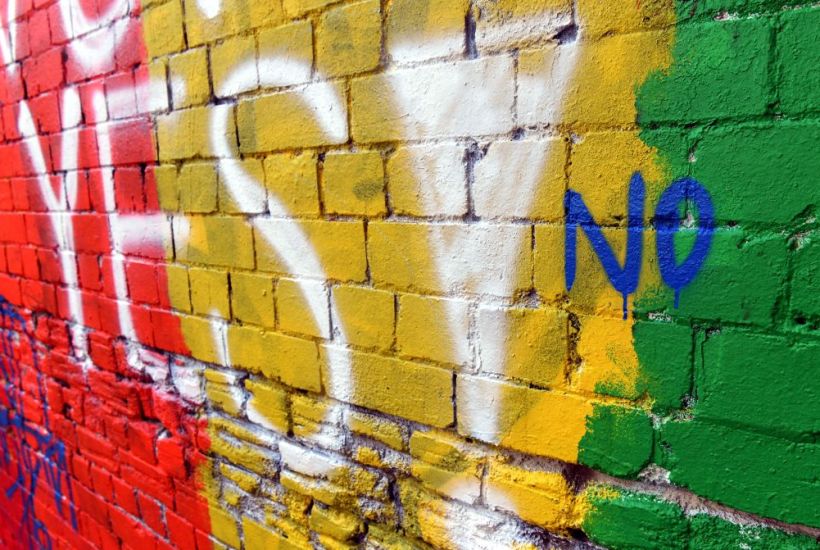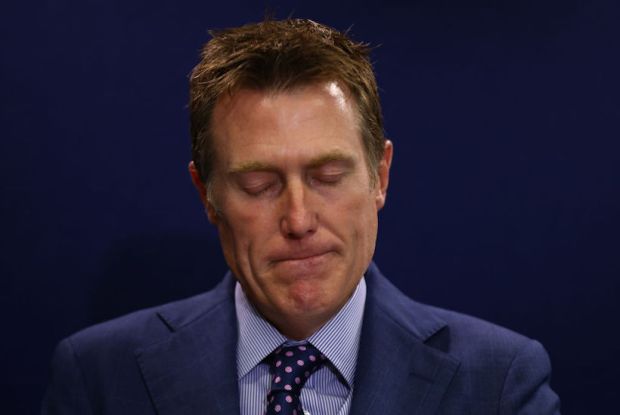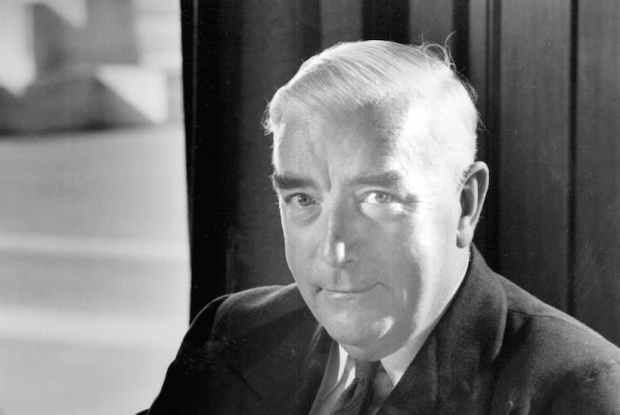When one considers the proposed redefinition of marriage, one cannot help but notice the undeniably statist nature of the proposal. The state is effectively being asked to redefine the meaning of a millenary institution that, according to classical liberal philosophy is actually antecedent to the formation of the state. As John Locke pointed out in Two Treatises on Civil Government (1690), ‘the first society was between man and wife, which gave beginning to that between parents and children’.
Locke is known as the ‘Founder of Classical Liberalism’ because his immense contributions to political philosophy provided moral and political justification for the 1688 Glorious Revolution in England. Of course, later on, his contributions were reflected in, among other things, the United States’ Declaration of Independence, especially its appeal to God-given ‘inalienable rights’ and our lawful right to resist political tyranny. Although many express their admiration for Locke’s words as a major source of liberal-democratic theory, it is important to remind that he ‘explicitly based his entire thesis on Christian doctrines concerning moral equality.’ Marriage, according to Locke:
Is made by a voluntary compact between man and woman, and though it consists chiefly in such a communion and right in one another’s bodies as is necessary to its chief end, procreation, yet it draws with it mutual support an assistance, and a communion of interests too, as necessary not only to unite their care and affection, but also necessary to their common offspring.
By contrast, same-sex marriage activists seek to redefine a pre-political institution that protects children and limits the power of the state. As noted by Gerard Calilhanna in ‘Gay Marriage and The Growth of State Intervention (Quadrant, September 2012), ‘here we have a major example of extreme statism, where a crucial pre-state institution that limits the power of the state is suppressed and replaced by an institution that depends on the state for its existence’. Indeed, same-sex marriage ‘has nothing to do with liberty’. It is rather an artificial creation by our powerful elites that ‘expands rather diminishes the power of the state over our lives’. Therefore, as Brendan O’Neill correctly points out:
The presentation of this as a liberal, or even libertarian, issue is highly disingenuous. For in truth, gay marriage massively expands the authority of the state in our everyday lives, in our most intimate relationships, the ultimate provider of validation to our lifestyle choices, while empowering it to police the cultural attitudes and consciences of those of a more religious or old-fashioned persuasions.
Many gay and lesbian people do not even want to get married and are the least likely to according to 2015 statistics from the UK. They would much prefer not to subject themselves to such legal constraints by the state, which reduce their ability to pursue freedom from enduring relationships. But behind the ‘same-sex marriage’ agenda is a more sinister effort to increase the power of the state. So long as the family becomes the primary source of loyalty to the individual, then the government, the powers-that-be, the cultural elite, or the media elite do not have ultimate control over how we live our lives. This is not an unreasonable assumption since, as Heritage Foundation’s Ryan T. Anderson points out, ‘if marriage is redefined, believing what virtually every human society once believed about marriage … would be seen increasingly as a malicious prejudice to be driven to the margins of culture’.
Increasingly, the LGBT lobby is using anti-discrimination laws to prevent dissenting voices from expressing their views in the public square. Once same-sex marriage is legalised, there is a great possibility that the law will equate the traditional view of marriage with the notion of ‘homophobic’ bigotry. As a result, anyone who dares to criticise the ‘homosexual agenda’ will be subject to very harsh legal treatment.
For many supporters of same-sex marriage, such infringements of free speech are not morally wrong; quite to the contrary. That being so, calls for draconian anti-discrimination laws to not apply during the plebiscite on same-sex marriage were met with further offence and vilification by the same-sex marriage lobby.
There have been a number of reports about violence and intimidation against supporters of traditional marriage. For instance, the headquarters of the Australian Christian Lobby in Canberra have been firebombed, staff have been threatened and white powder was recently stuffed in an envelope addressed to the organisation. Indeed, it appears that almost everyone who supports the traditional definition is being called a ‘bigot’ and a ‘homophobe’. Labor leader Bill Shorten has called them ‘haters’. This is despite the fact that the current law says that marriage is only between a man and a woman.
There should be a fair and reasonable debate about whether Australia should legalise ‘gay marriage’. However, the threats by gay lobby activists have even forced Christians and other groups to cancel meetings. On September 17, 2016, a meeting by four major Christian groups (Sydney Anglicans, the Sydney Catholics, Marriage Alliance and the Australian Christian Lobby) at the Mercure Hotel at Sydney Airport had to be cancelled ‘after a social media storm triggered phone calls that ‘rattled’ employers and left the [hotel] concerned about the safety of staff and guests’.
These groups simply wished to discuss the campaign to oppose any change to the Marriage Act. This was the mildest of meetings, not a public rally. But same-sex marriage activists appear to believe that anyone who does not entirely support their cause is to be hated, humiliated and intimidated. They phoned the Mercure Hotel and intimidated staff, including making physical threats. Likewise, commercial TV channels have refused to air advertisements supporting traditional marriage and/or opposing same-sex marriage. Also, a leading advertising agency has been calling on its industry peers to refuse to work for companies campaigning against the cause of same-sex marriage.
One who has heard of all of these instances must surely think ‘so much for tolerance’. What further events will they close down? What advertisements will they stop?’ As Angela Shanahan points out, ‘The Yes vote is backed with big money and corporations such as Qantas telling us that we won’t be able to fly, bank or do business if we don’t agree with this. They have even picked on old ladies like the rather formidable Margaret Court.’
Possible implications for religious liberty
Attorney General George Brandis has said in Parliament that he will not be tricked by those who are trying to turn a debate about one issue (i.e.; whether same-sex couples should be allowed to marry) into a broader debate about religion freedom, ‘because that’s not what this is about’. In sum, Senator Brandis claims that the same-sex marriage plebiscite has nothing to do with freedom of speech and religion.
This is an astonishing statement. As the country’s first law officer of the Crown, Senator Brandis should know that we only need to have a look at what happened in countries that have legalised same-sex marriage. Consider Ireland for example. Following the 22 May 2015 landslide defeat for opponents of same-sex marriage – the referendum was lost by 62 per cent in favour of gay marriage to 38 per cent against – the Irish parliament stripped away all laws which protected the rights of people to freedom of religion when in conflict with ‘gay rights’. It voted unanimously to repeal Section 37 of the state’s Employment Equality Act, meaning that LGBT teachers will be free to talk to school pupils about their personal relationships, even in faith schools.
There are numerous other precedents overseas rejecting the assumption by the Attorney General that when same-sex marriage is introduced, religious freedom will be fully protected. Instead of addressing these issues, he prefers to simply ignore them, calling them alarmist and irrelevant. However, the redefinition of marriage will have broadly cultural consequences and wider social implications. This is why the outcome of the marriage plebiscite will be so important for the future of our rights and freedoms this country, in particular, freedom of conscience and freedom of religion.
Final considerations
In a truly liberal society, everyone’s right is respected without infringing the rights of another. Nothing excuses undermining these basic rights of the individual in the name of so-called ‘marriage equality’. For example, religious people have the right as anybody else to express their opinions freely. Their objections to same-sex marriage are not about an attempt to break any law or to impose discrimination upon gay people, but they reflect a mere disagreement on what the nature of marriage ought to be. They are just trying to remain true to their beliefs as their consciences dictate. They are not looking for trouble and they do not wish to deny any person, regardless of their sexual preferences their fundamental rights. They only ask not to be coerced into violating their own consciences and religious beliefs.
This leads to the important question of whether the push for such a change may be at least partially motivated by a disregard for religious liberty and freedom of conscience. For Australia and its alleged spirit of tolerance and open debate, this is an unprecedented situation. ‘It reveals an aggressive secularism dressed in the moral cause of anti-discrimination justice but with a long-run agenda that seeks to transform our values and, ultimately, drive religion into the shadows. The vanguard for this drive is the same-sex marriage campaign’, as Paul Kelly says. Above all, this is about a new statism that seeks to dramatically alter the meaning of a millenary institution. The consequences for individual rights and freedoms (particularly religious liberty, free speech and freedom of conscience) will be absolutely devastating.
Dr Augusto Zimmermann is President of the Western Australian Legal Theory Association (WALTA). He is also Professor of Law (adjunct) at the University of Notre Dame Australia (Sydney campus); Fellow at the International Academy for the Study of the Jurisprudence of the Family (IASJF); Former Law Reform Commissioner (Law Reform Commission of Western Australia); Former Associate Dean for Research (Murdoch University) and Director of Post Graduate Research (Murdoch University).
Got something to add? Join the discussion and comment below.
Got something to add? Join the discussion and comment below.
Get 10 issues for just $10
Subscribe to The Spectator Australia today for the next 10 magazine issues, plus full online access, for just $10.


























Comments
Don't miss out
Join the conversation with other Spectator Australia readers. Subscribe to leave a comment.
SUBSCRIBEAlready a subscriber? Log in